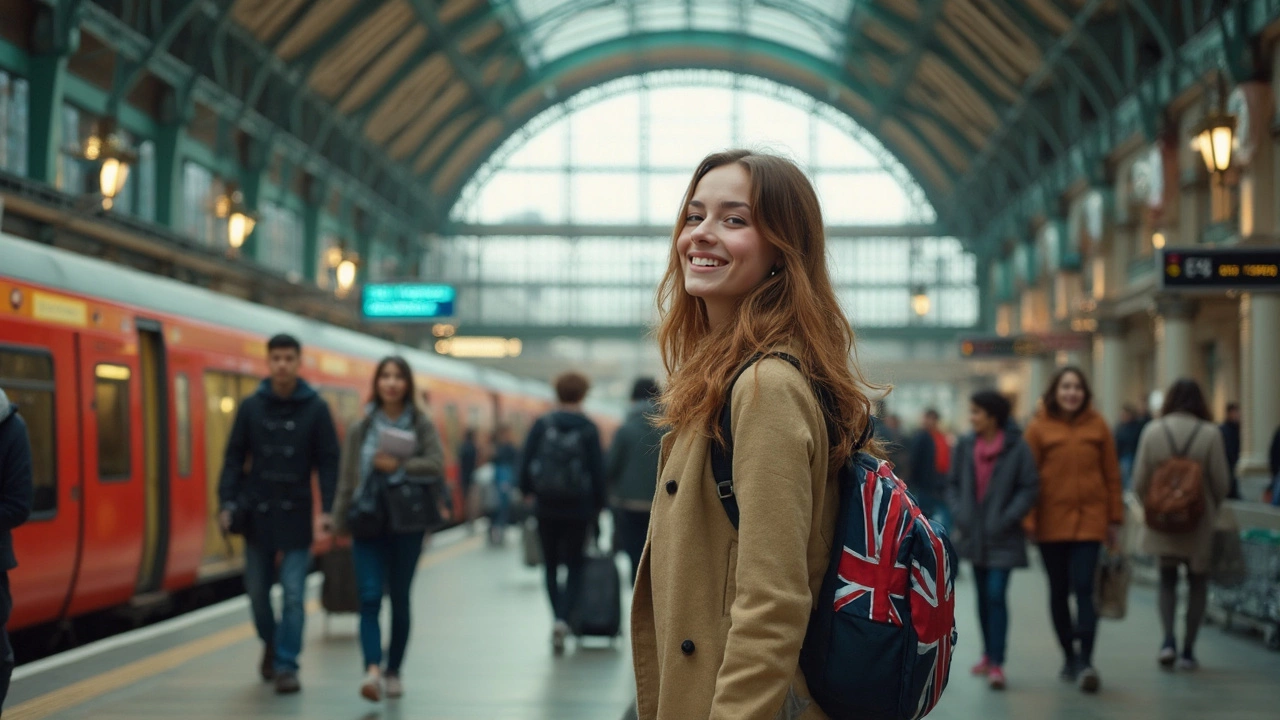You’d think sipping coconut water on a sunny beach would zap away anyone’s anxiety. The travel sites are packed with smiling faces, and even Instagram seems to scream, “Take a break, and you’ll feel brand new.” But is a getaway actually the stress-buster it’s hyped up to be? The truth is pretty wild—vacations can both soothe anxious minds and, sometimes, make things heavier.
What Science Actually Says About Vacations and Anxiety Relief
It’s no secret that the idea of escaping daily stress is magnetic. Psychologists love to point to studies that link time off to mood boosts. For example, a 2018 study published in the journal "Tourism Analysis" tracked people before, during, and after a trip. The big headline? Most participants had notably less stress and anxiety while away—but the benefits usually vanished about two weeks after returning home. Short-term relief, sure, but not a magic reset button.
Don’t get me wrong, there’s legit biological stuff going on when you switch locations. Changing scenery tells your brain it’s time to cool down; cortisol, the body’s main stress hormone, drops. People who didn’t know vacations could actually lower heart rates? Here’s your fun fact. According to the American Psychological Association, folks who took regular breaks had a 30% lower risk of heart disease—which experts partly link to stress management, not just physical rest.
But here’s the plot twist: not all vacations work the same. If you spend your days hustling through packed museums or worrying about lost passports, your brain never really gets that true exhale. Some travelers return home more keyed-up than when they left. Researchers from Radboud University found in 2017 that poorly planned trips—think crammed itineraries or travel mishaps—can actually spike anxiety for weeks after.
So, does a vacation cure anxiety for good? Science says it’s more like a brief shower than a month-long drought-buster. Still, there’s no denying that most people experience real, if temporary, relief while away. If you’re aching for that mental reset, just know how quickly it can fade after re-entry.
The Real-Life Benefits of Taking a Break
A lot of people end up needing proof, not promises, before shelling out for plane tickets. Here’s some hard data:
| Study | Key Finding |
|---|---|
| University of Tampere (Finland) | Vacationers saw mood boost by day 2 of trip; effects faded after 1 to 2 weeks home. |
| U.S. Travel Association | More than three quarters (77%) of Americans reported improved mental health after traveling. |
| Harvard School of Public Health | People who took two or more vacations per year had a significantly lower risk of heart attack and depression. |
| American Psychological Association | Daydreaming about a holiday or planning a trip boosted happiness, even before leaving home. |
Here’s the thing—sometimes, just breaking your daily pattern is enough to send your anxiety down a notch. Walking new streets, hearing fresh sounds, even tasting odd street food fires up your senses and drags your brain out of its worry loops. I’ve talked to folks who say that hiking a foggy mountain trail made their problems shrink, at least for the morning.
But none of this is a sure thing. People with social anxiety might dread crowded tourist hotspots, and for some, getting out of a safe routine brings way more stress than normal. Still, for most, even a short weekend away can spark some honest-to-goodness lightness inside. If you’ve been stuck at a desk staring at spreadsheets all year, just being somewhere new is such a rush it sometimes makes you question why you don’t do it more often.

The Vacation Trap: When Anxiety Tags Along
Let’s get real: packing a suitcase doesn’t mean you leave your brain behind. Almost 40% of American travelers admit they actually feel uneasy or overwhelmed before a trip. The root causes? Fear of flying, social awkwardness, or just the general chaos of being away from home.
Ever stress out about missing your flight? Or doubled back to your hostel three times to check if you locked your bag? You’re not alone. People with vacation anxiety aren’t just imagining it—travel sets off plenty of triggers. There’s this study from the University of Surrey that found “anticipatory anxiety”—worrying about the upcoming travel—hits hard, especially for first-timers or those prone to panic.
And then there’s post-vacation blues, which hits harder than you’d think. Coming back to bills, emails, and unfinished laundry can bring a “downer” effect that makes all those beach memories go fuzzy fast. According to a survey by Korn Ferry, 82% of U.S. employees said their stress level rockets up within just a week of returning to work. Sometimes, all the freedom and escape makes regular life feel even heavier. How’s that for irony?
So, what’s the deal? Is there a way to cheat these hidden traps? Or are we all doomed to stress out about relaxing? Good news: you can tilt the odds way in your favor with a few simple tricks.
Travel Hacks: Turning Your Trip Into An Anxiety Soother
Here’s where things get practical. If you want a vacation that actually recharges you—without turning into a stress nightmare—you’ve got to plan a little smarter. Here’s what works for a lot of people who crave some chill but get overwhelmed too easily.
- Keep your itinerary loose. Pack one thing a day you really want to do. Leave plenty of “nothing” time, so if you stumble on a cool café or a random park, you’re not stressing about being late elsewhere. A full calendar is a recipe for travel burnout.
- Pace yourself. Consider longer stays in fewer places. It takes about a day for your body to adjust to a new city, so give yourself time to catch your breath before anyone drags you on a bus tour.
- Sleep matters—big time. You’re way more likely to get anxious if you’re sleep-deprived, jetlagged, or both. Bring an eye mask and earplugs. If you’re headed to a noisy city, book a room away from the street.
- Stick with routines that ground you. Like meditation? Don’t ditch it. If a morning walk calms you down at home, lace up your shoes first thing. Tiny rituals make new places feel less foreign.
- Pack for comfort, not just looks. Comfy shoes, a light jacket, and a water bottle beat out fancy outfits if you end up walking more than you planned or stuck outside longer.
- If it helps, talk to locals or other travelers in advance. Joining online groups, forums, or travel communities can help ease worry by giving you the lowdown on what to expect.
- Limit digital overload. Shooting pics for social is fun, but doomscrolling or checking work emails can kill your mood. Try a phone detox or at least a few hours offline every day.
- Redefine a “good” vacation. Forget bucket lists and must-sees. A great day could just be watching the city go by from a bench, or sharing a slow meal with a friend. Not everything has to be ‘epic’ or ‘life-changing’ to matter.
- Don’t ignore your limits. If crowds, unfamiliar foods, or constant moving zap your energy, lean into what you need. There’s no gold medal for finishing every tourist checklist.
One tip people sometimes overlook: budget for a buffer day when you come home. Give yourself at least 24 hours before work to decompress. It’s like a landing strip for your brain—you’ll settle back in way smoother, and that lingering vacation calm might stick around longer.

Can a Vacation Truly Cure Anxiety?
Here’s the question that everyone’s dying to answer. The truth is, a vacation can’t “cure” a medical anxiety disorder. That stuff takes real treatment, sometimes therapy or medication—or both. But for most people, a break from routine, a splash of the unfamiliar, and a little taste of adventure can chip away at stress, even if it’s just temporary.
Think of it as a fresh start for your brain. You come back with new smells locked away in your memory, a few goofy stories, and maybe a shift in how big or small your problems really are. Some therapists actually recommend travel as part of lifestyle tweaks—nothing extreme, just a shot of difference when things start to feel heavy.
It boils down to proof, not hype. The science says you’ll probably feel lighter during your trip, especially if you watch your pace and remember what actually calms you down. But don’t toss out your self-care playbook or skip your meds just because you booked a flight. A perfect itinerary won’t erase deeper stuff, but it might help you reconnect with the world—and a more relaxed side of yourself.
So next time you’re debating whether to hit “book now” on that cabin in the woods, maybe give yourself the green light. Just leave the pressure for Instagram behind. The best travel trick isn’t seeing more sights, but learning what makes you feel at home, wherever you end up.

Menu